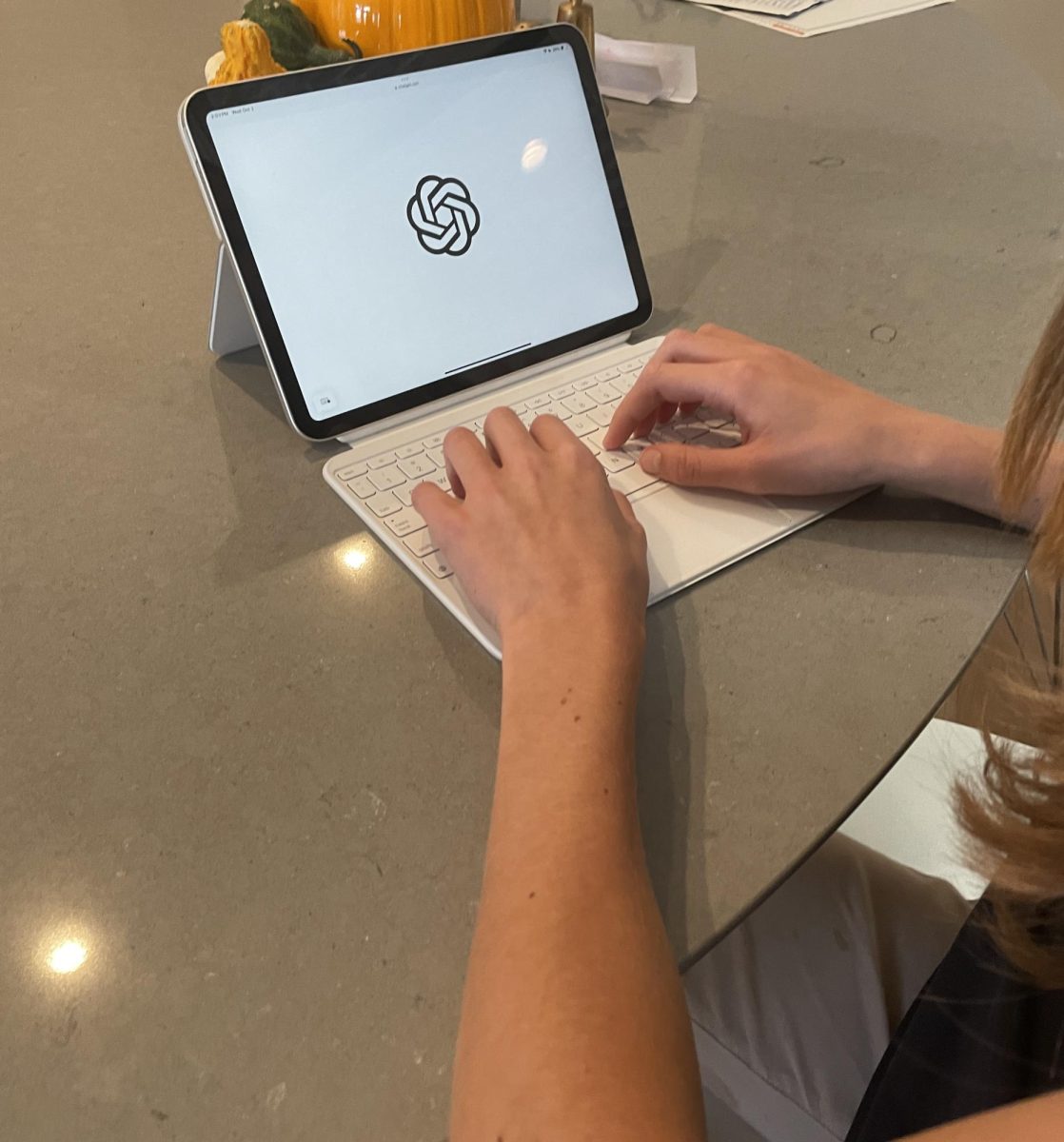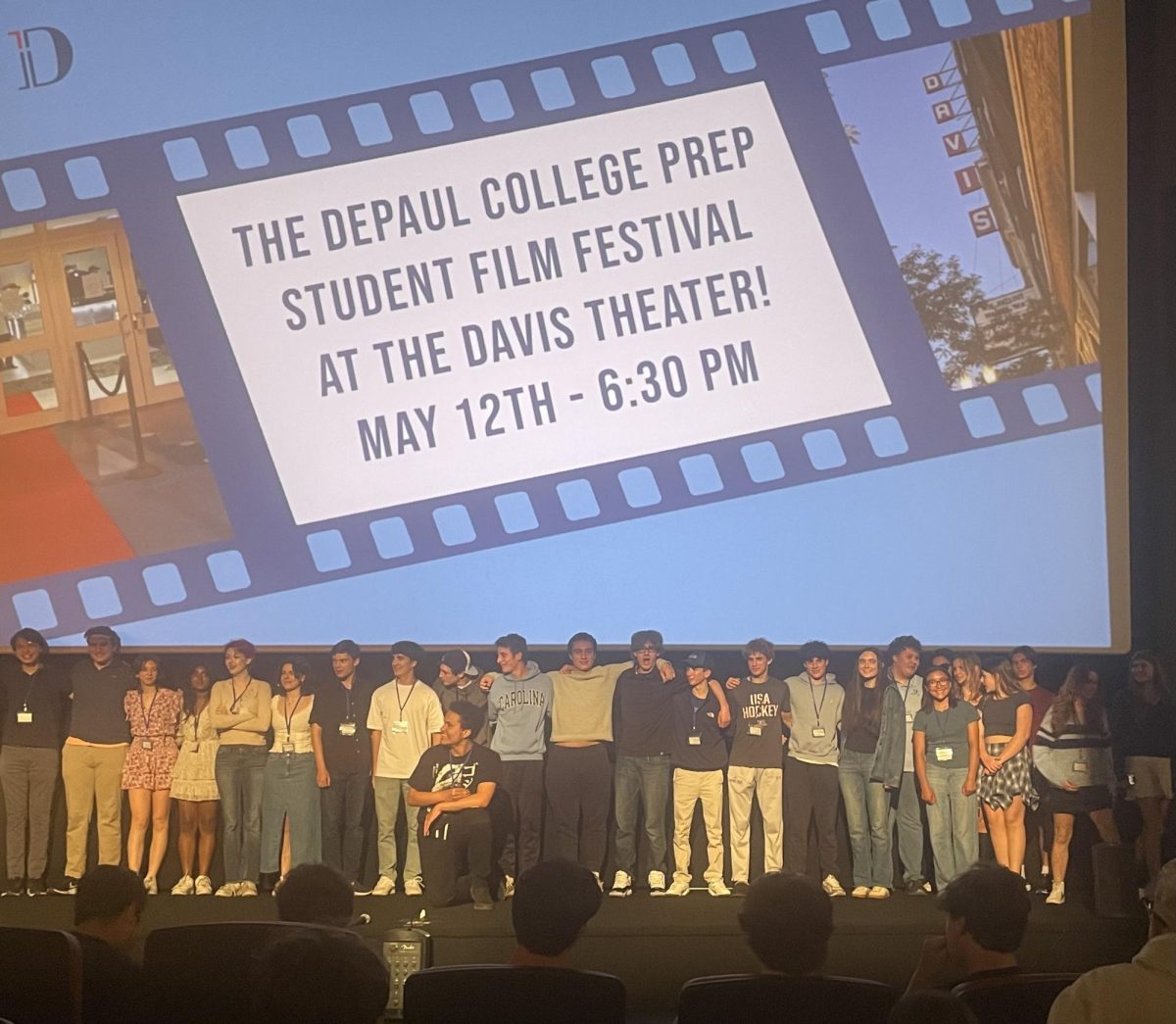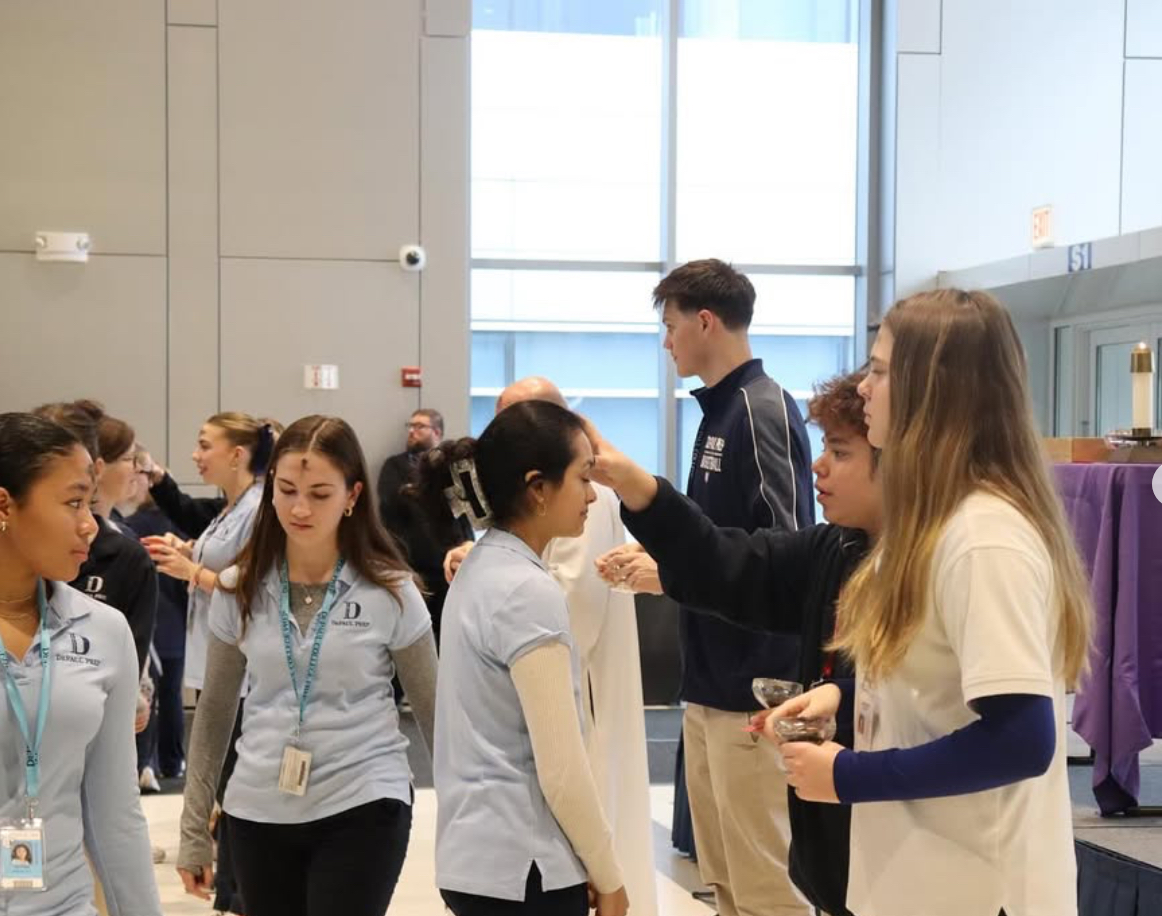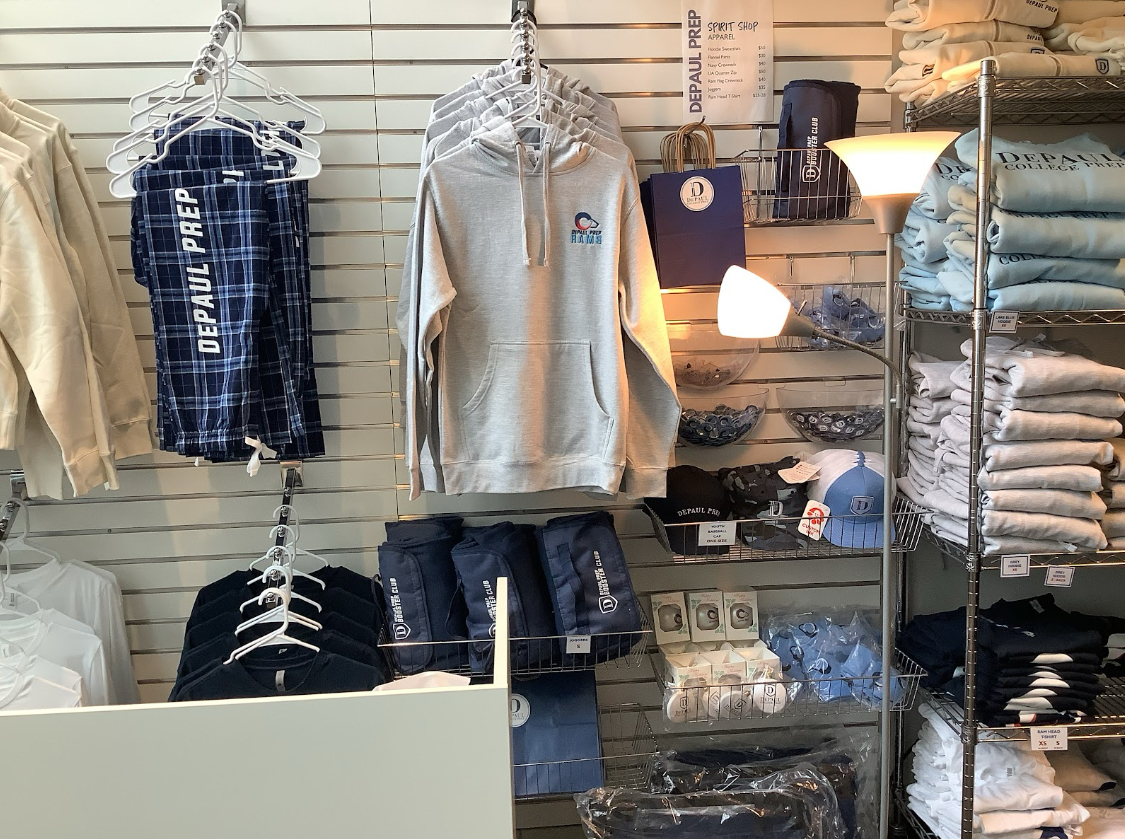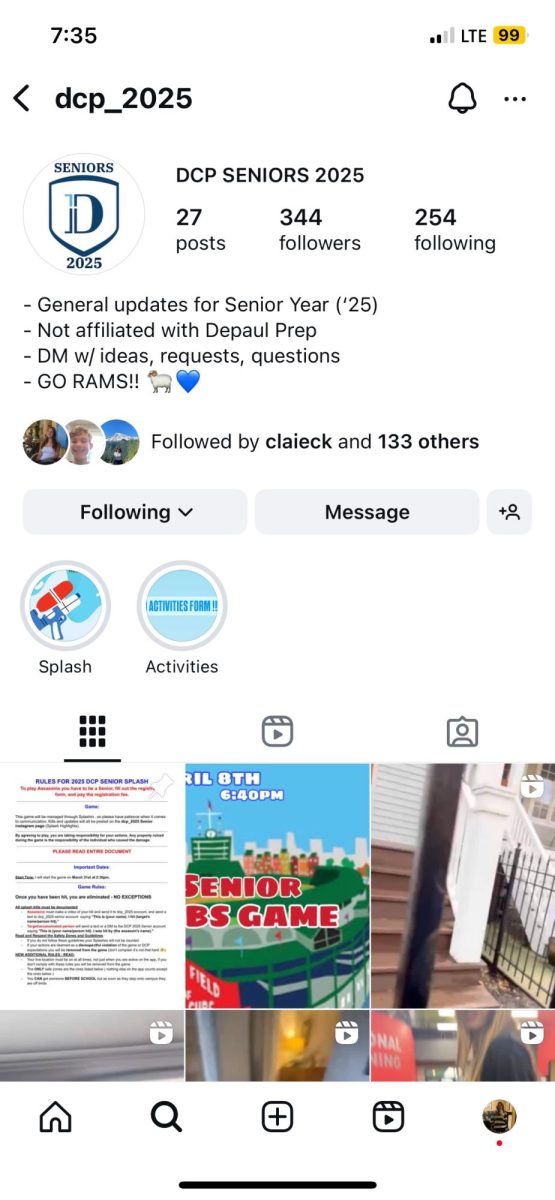Unnerved around AI? This question was answered with an earnest response from Michael Rabideau, Assistant Dean at DePaul College Prep: “(Students) should never use it.”
But countless students question his position that AI is mostly a source of unhelpful distraction inside the school environment, while others more try to speak of a coexisting balance between its positive and negative effects for the education system, especially at DePaul College Prep.
“I don’t think there’s a good or bad … it’s more how we interact with AI,” said Melisa Lord, head Dean.
“But where it gets tricky, especially from the deans’ perspective, (is how) it’s too easy for students to then …. snatch something off the web and ask an AI chatbot or what have you to write a paper.” Lord considers plagiarism from AI as “inauthentic” of the students who cheat by it, the wrongful act of “stealing off of someone else’s work.”
In the world today, debates are picking up in schools across the country, once again, about how new technologies should be used in school. Phones have been one of those debated “new technologies” for a few years now, something DePaul Prep has restrained from the classroom with new rules and consequences this year.
However, modern technological innovation has not come to a stopping point with smartphones. In the past year or two, tremendous growth in the artificial intelligence industry has revealed itself to the public through popular applications such as ChatGPT, a chatbot that can respond to your questions with fairly accurate, articulate responses.
The popularity of ChatGPT has inspired big tech companies to come out with their own versions of the chatbot, posing new possible threats to academic integrity alongside the original GPT. Lord said she “knows that AI is ever changing and getting more sophisticated, more complex. Right now we’re … creating policies around how teachers and students interact with AI.”
Despite the “ongoing” development of policy regarding AI, students have other ideas. AI “helps kids with questions that teachers don’t answer,” said senior Greta Kurtz.
“It gets stuff explained to them in a better way … [I]t will always give you the right answer,” said sophomore Maura Driscoll with a laugh.
Will it always give you the right answer? Rabideau would be hesitant. “It’s one thing to have gone through your whole education, get challenged, learned your own processes and how to think things through,” he said. “And then, after you’ve done all that and had life experience, lean into AI to help you get started to do something. It’s another thing, before you’ve developed any of those pathways, to just lean into AI and say: Tell me how to do it or just do it for me!”
While the relationship between students and AI has its own quirks, the relationship between teachers and AI is a different story, with exciting new possibilities. Liam Jeske, computer science teacher, said that the relationship between AI and teachers has noteworthy benefits.
“Last week I made a lab for my AP Computer Science A class partially using ChatGPT. (I) generated another step (in the lab). I don’t use it to generate the whole thing, though. I use it to generate a rough draft.” said Jeske. He said responsible use of ChatGPT (once those “pathways” have been “developed,” in Rabideau’s words) cannot be neglected when weighing the positives and negatives of artificial intelligence in a school environment.
Still, Jeske has some reservations about students using it. He said, “I don’t think students know how to use this tool correctly or responsibly. I think there’s a ton for AI, and maybe AI is more appropriate for the college level. But you don’t use a calculator right away when learning how to multiply and divide.”
Jeske also cautioned of a large potential for abuse of AI among high school students, something even the students themselves articulated. Annie Betts, a senior, said that they’re “aware” of fellow students cheating on AI. “It’s not good, but with all good things come bad things.”
Overall, if one looks at the bigger picture, the AI revolution and the smartphone revolution are “similar,” according to history teacher Alexander Reeves. “My generation went through … the whole transition from a flip-phone to an iPhone,” he said. “But you guys are seeing AI come about now.”
AI got stringent rules for itself immediately when it came on the scene in school, but what about smartphones? “When I was in high school,” said Jeske, who went to DePaul Prep, “[phone] policy was much more relaxed. We were allowed to have them and, technically, allowed to use them. Dr. Stanton came in my senior year, and my senior year is when she changed that rule … You would maybe get detention if you were using your [phone] in class, but if you finished all your work, it wasn’t really seen as a big deal.”
The response to AI, even if it is “ongoing” and in the process from school policy makers, is happening much quicker than the gradual response to smartphones by high schools. The movement to ban phones in schools didn’t take root the moment the first iPhones became popular since they were only originally seen as “toys,” according to Reeves.
But with AI, he said he thinks “a lot of teachers, especially of the older generation, immediately decided, ‘Oh, no one’s going to write an essay anymore. No one’s going to make an effort to do any of this because they’ll just rely on ChatGPT’… which isn’t true. But, it was an immediate response.”
Teachers and students alike place varying degrees of trust in young learners to utilize AI responsibly. Reeves, unlike others, expressed some faith that students would be able to handle GPT responsibly if taught in a certain way.
“AI is going to be a tool just like anything else … I think banning innovation, banning AI, that’s the wrong way to go.” Not teaching students how to use AI, Reeves said, would be a mistake. It would keep students behind while the rest of the world was familiarizing itself with the new technology, keeping ahead. “[Artificial intelligence] is around. We’re going to use it. Let’s figure out how to use it effectively.”
Melisa Lord said likewise. According to her, the dean department is seeking to develop “more conversations with staff and leadership on how we can go about creating policies that will help students understand what academic integrity is and what artificial intelligence is, especially help[ing] those going off to college next year.” Colleges will certainly not be sympathetic to AI plagiarism.
But, at the same time, she acknowledges there are benefits to be cultivated even in the high school setting. “I would like to say that if we are one of the first to put a team together to start looking at AI in terms of a high school … we [could] be setting a precedent for other schools.”
So what does DePaul Prep think of AI? What will be the final outcome of all this policy development going on in the deans’ department? On the spectrum of distrust and trust in students to use AI responsibly, some have placed little or lots of faith. Students have seen AI more as a tool, while teachers and deans have more or less urged caution. Similar to smartphones and the response to them being gradual due to their capabilities as both a distracting “toy” and a vital communicator, the final say in how the school system views AI is yet to be determined.


